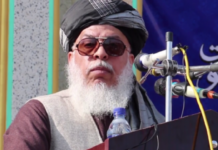Canada’s French-speaking province of Quebec has introduced a bill that would prohibit civil servants from wearing religious symbols like the hijab at work.
The centre-right Coalition Avenir Quebec’s (CAQ) bill covers teachers, police officers, prosecutors, judges and public sector roles.
This is not the first time Quebec has advocated law to re-enforce state secularism.
Bill 21 will bar civil servants from wearing symbols, which will affect Muslim women who wear the hijab, Jewish men who wear the kippah, and Sikh men and women who wear the turban.
Civil servants who currently wear “religious symbols” will be exempt from the legislation.
The CAQ government hopes to pass the legislation as early as this summer.
The CAQ was voted in last autumn due to their pledges to curb immigration and impose a secular charter.
Subscribe to our newsletter and stay updated on the latest news and updates from around the Muslim world!
Premier of Quebec Francois Legault told journalists the legislation “represents our values and it’s important.”
His government offered one compromise last Thursday, introducing a motion that would see the crucifix that hangs in the provincial legislature removed once the law is passed.
Prime Minister Justin Trudeau criticised the bill last Thursday, stating: “It is unthinkable to me that in a free society we would legitimising discrimination against citizens based on their religion.”
Groups and organisations that have spoken against the proposed bill are:
- A teachers’ labour union mounted a legal challenge over questions the provincial government put to a number of school boards and schools related to how many of their employees wore religious symbols at work.
- The Federation autonome de l’enseignement, which represents more than 43,000 educators in the province, said it believed that type of query breached Canada’s rights charter.
- The English Montreal School Board, the largest English public school board in the province, said it will not implement the proposed measures.
- Jewish advocacy group B’Nai Brith called it “an assault on the fundamental rights and freedoms of Quebecers”.
- The National Council of Canadian Muslims (NCCM) called it “discriminatory legislation”.
NCCM’s executive director, Ihsaan Gardee, said in a statement: “Under the guise of secularism, this legislation is effectively a prohibition on wearing the hijab in the Quebec public service given the overwhelming number of people impacted will be Muslim women.”
The NCCM unsuccessfully challenged a previous provincial Liberal legislation that banned the niqab and the burqa.
The Quebec government is using the rare “notwithstanding clause” which permits it to override the Canadian Charter of Rights and Freedom for up to five years as a protective measure against legal challenges.
In 2014, the Parti Quebecois introduced a so-called ‘Charter of Values’ bill that would have prevented public servants from wearing religious symbols and made it mandatory to have one’s face uncovered when receiving or providing a government service.
In 2017, the provincial Liberals also passed a more narrowly focused law that barred people from wearing face coverings when receiving or giving a public service.






















